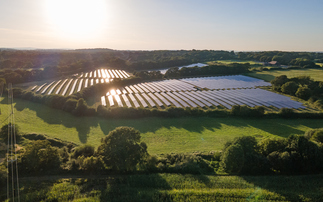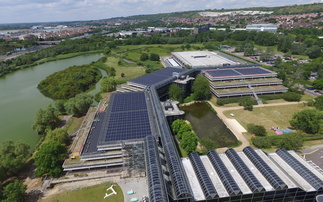Marc Gunther reveals how a chance encounter led to one of the most ambitious solar development programmes in the Caribbean - and a new market for a US energy giant
This is all to the good, but what will be the payoff for NRG Energy, a publicly-traded company (2012 revenues: $8.4bn) that has to answer to shareholders?
One benefit is employee motivation. Dozens of people volunteer in Haiti. On the company blog, staffers described the trip as life-changing. One wrote: "Just to see everything, all they go through, and they don't complain at all. People were standing in line for hours - almost the whole day - waiting to see a doctor at the hospital. We complain after 20 minutes if our doctor is late for an appointment. It just really puts into perspective all that we have, how little they have and how much our presence there and this project was going to mean for the people of Haiti."
Says Crane: "Every NRG person who's been down there has come back feeling as committed to the project as I am."
Beyond that, Crane sees business opportunities. So far, all of the company's work in Haiti has been charitable, but NRG is pursuing solar projects elsewhere in the Caribbean, including Puerto Rico. Throughout the region, electricity prices are high - as much as 50 cents per kilowatt hour, nearly five times what the average American pays.
"We see significant opportunity in the Caribbean," Crane told me. "We'd like to be involved."
A recent report from GTM Research said that Latin America and the Caribbean will install more than 450MW of grid-connected PV this year, compared to less than 100MW in 2012. Most of that will be in Mexico, Chile and Brazil, but Jamaica and the Dominican Republic are considered attractive markets, too.
In fact, some people see enormous clean energy potential in the Caribbean. Last year, at a conference called the Sustainable Operations Summit, Bill Clinton said: "Almost every country in the Caribbean could be completely energy independent with solar, wind, geothermal and biomass."
Not long after, the government of Aruba announced a plan with Sir Richard Branson and his nonprofit Carbon War Room to make the island "the world's first sustainable energy economy." The Carbon War Room's Smart Island Economies project intends to generate private investment to help islands move away away from fossil fuels.
Imagine if Clinton, Branson, Crane and others got together to bring clean energy - profitably - to the Caribbean.
This article first appeared at GreenBiz.com







